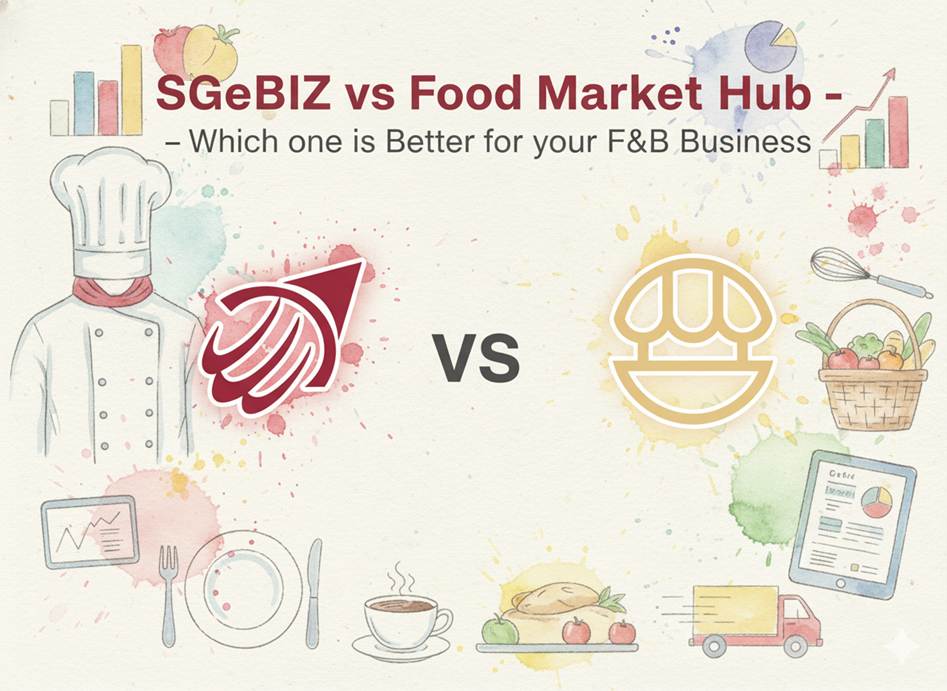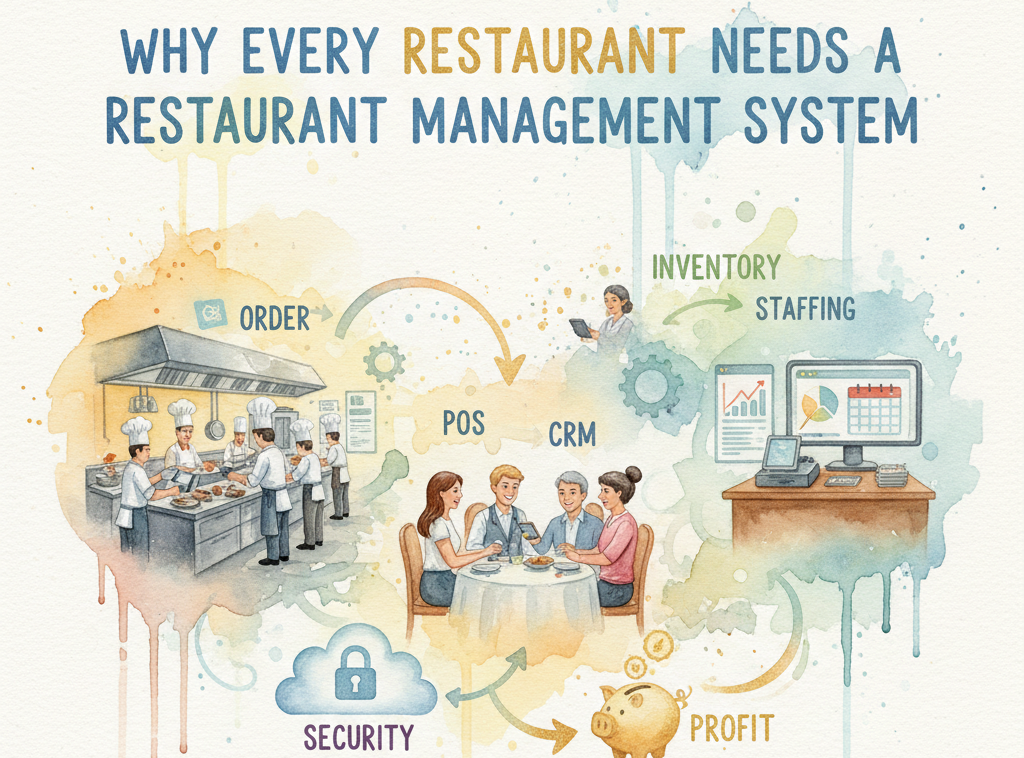Types of Restaurant Suppliers and Which One Is for You?

Finding the right food suppliers is one of the most important decisions you will make. The quality, price, and reliability of your ingredients directly affect your menu, customer satisfaction, and profits. But with so many options out there, how do you choose the best one for your needs?
In this guide, we’ll break down the different types of restaurant suppliers, where you can get your ingredients, and the pros and cons of each. We’ll also show you how a supplier management system can help you stay organized and save time.

Types of Restaurant Suppliers
Not all suppliers work the same way. Some deliver fresh produce daily, while others specialize in bulk dry goods. Understanding the differences will help you make the best choice for your restaurant.
Wholesale Suppliers
Wholesale suppliers sell large quantities of food at lower prices. They usually work with restaurants, grocery stores, and other food businesses. You can find everything from meat and seafood to canned goods and spices.
The biggest advantage of wholesale suppliers is cost savings. Buying in bulk means you pay less per unit. This is great if you have enough storage space and go through ingredients quickly. However, you may need to meet minimum order requirements, and not all wholesalers deliver. You might have to pick up the goods yourself, which can take time and effort.
Local Farmers and Producers
If you want fresh, seasonal ingredients, local farmers and producers are a great option. Many farmers sell directly to restaurants, offering fruits, vegetables, dairy, eggs, and even meat.
The biggest benefit is quality. Locally sourced food is often fresher and tastes better. You also support small businesses and reduce your carbon footprint since the food doesn’t travel far. However, local suppliers may have limited availability, depending on the season. Prices can also be higher than wholesale, and you may need to coordinate with multiple farmers to get everything you need.

Specialty Suppliers
Some ingredients are hard to find in regular wholesale markets. Specialty suppliers focus on specific products like organic foods, imported cheeses, rare spices, or vegan alternatives.
If your menu includes unique or high-end dishes, specialty suppliers ensure you get exactly what you need. The downside is that these suppliers are often more expensive, and delivery times may be longer, especially for imported goods.
Restaurant Food Distributors
Distributors act as middlemen between producers and restaurants. They offer a wide range of products, from fresh produce to frozen foods and dry goods. Many distributors provide delivery services, making it convenient for you.
The advantages are variety and convenience. You can order everything from one place and get regular deliveries. However, prices may be higher than when buying directly from wholesalers or farmers. Some distributors also have long-term contracts, which may not be ideal if you like to switch suppliers often.
Online Restaurant Suppliers
Online suppliers have grown in popularity because they offer convenience and competitive pricing. You can browse products, compare prices, and place orders anytime. Some even offer next-day delivery.
Online ordering saves time and gives you access to a wider selection. You can easily compare prices and read reviews before buying. The downside is that you can’t inspect the products before they arrive. Shipping costs can also add up, and delays may happen due to high demand or weather conditions.
How to Choose the Right Restaurant Supplier
The wrong choice can lead to wasted food, unhappy customers, and lost profits. Here’s what you need to consider before making a decision:
Quality – Your food is only as good as your ingredients. Always inspect the freshness and condition of what you’re buying. If possible, ask for samples before committing to a large order. A good supplier will provide consistent quality, so you don’t have to worry about bad batches ruining your dishes.
Price – While saving money is important, the cheapest option isn’t always the best. Compare prices from different suppliers, but don’t compromise on quality just to cut costs. A slightly higher price might be worth it if the ingredients last longer or taste better.
Reliability – Late deliveries can throw off your entire kitchen. A dependable supplier delivers on time, every time. Check reviews or ask other restaurant owners about their experiences. If a supplier frequently misses deadlines, it’s better to look elsewhere.
Delivery Options – Some suppliers drop off orders at your door, while others require you to pick them up. If you’re busy, a delivery service can save you time and hassle. Make sure their delivery schedule matches your needs—especially if you need fresh ingredients daily.
Customer Service – Problems will happen, but a good supplier will fix them quickly. If they take days to respond or refuse to replace spoiled goods, they’re not worth your time. Test their responsiveness before signing a long-term contract.

How to Manage your Restaurant Suppliers?
Working with multiple suppliers can get overwhelming. You have to track orders, payments, and delivery schedules, all while running your restaurant. A supplier management system can simplify everything.
With the right system, you can:
Track orders and deliveries – Know exactly when shipments arrive so you’re never caught off guard.
Compare prices – See which suppliers offer the best deals without digging through piles of invoices.
Store records – Keep all invoices, receipts, and contracts in one place for easy access.
This kind of system saves time, reduces mistakes, and helps you control costs. Instead of juggling spreadsheets and sticky notes, you can focus on what matters—serving great food to your customers.
Frequently Asked Questions
1.What should I look for in a restaurant supplier?
Look for quality products, fair prices, reliable delivery, and good customer service. Always check reviews or ask for recommendations.
2.How many suppliers should I work with?
It depends on your menu and needs. Some restaurants use one main distributor, while others work with multiple suppliers for different ingredients.
3.Can I negotiate prices with suppliers?
Yes, many suppliers are open to negotiation, especially if you order in large quantities or commit to long-term contracts.
4.How do I handle late deliveries?
Have a backup plan, like keeping extra stock or working with a secondary supplier. Good communication with your supplier can also help prevent delays.
5.What is a restaurant supplier management system?
It’s a tool that helps you organize orders, track deliveries, and manage invoices from different suppliers in one place.
Choosing the right restaurant supplier makes a big difference in your daily operations. Whether you go with wholesalers, local farmers, specialty suppliers, or online vendors, each has its pros and cons. A supplier management system can help you stay on top of orders and save time.
Take your time to research and compare options. The right supplier will help you serve great food while keeping costs under control.










